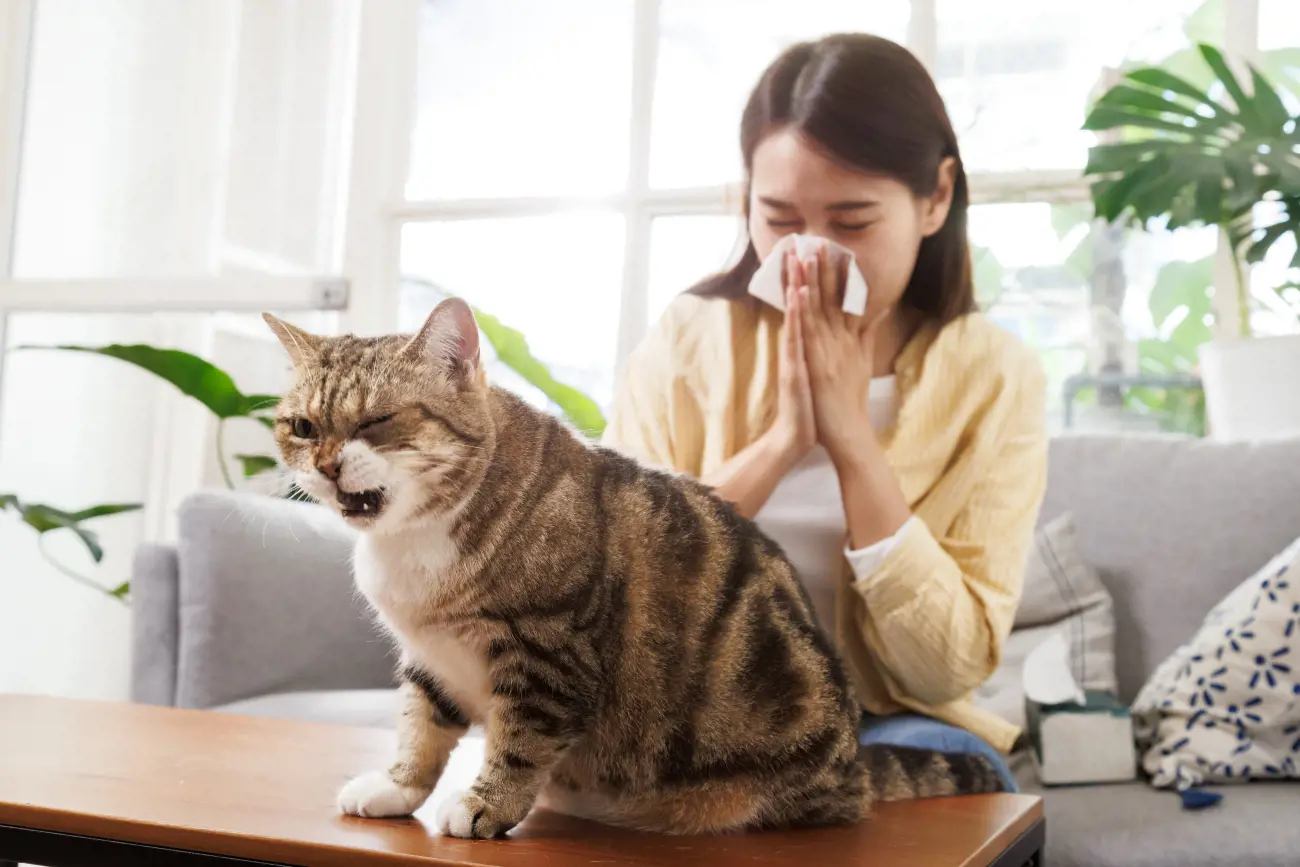How to care for an old cat
29th January, 2021

Just like their owners, even the most active cats will slow down a bit as they get older. They might venture out less, sleep more during the day and generally change their normal habits.
Just making a couple of small adaptations in your home could make a big difference to your cat's quality of life in their sunset years. So check out our guide to caring for an older cat to make sure you’re doing all you can for your beloved puss.
Remember, though, that changes in personality or behaviour can also be an early warning of illness or injury, so it’s worth paying a regular visit to the vet. By having suitable insurance for your pet in place, you can be sure your favourite feline will get the care they deserve.
When is a cat considered old?
Despite their small size, cats can live a long time. Many reach 14 or 15 years of age and some even make it past 20! It’s commonly thought you just multiply a cat’s age by 7 to get a comparative human age.
However, this is too simplistic and fails to take into account how cats age.
Healthcare programme CatCare4Life suggests a more accurate estimation. Cats of 7 to 10 years old are mature (similar to human middle age); 11 to 14 year olds are seniors (similar to human pensioners); and 15+ year olds are super seniors (equating to over 80+ years in humans).
Each feline, just like each human, is an individual and rates of physical ageing will obviously vary. However, any ageing cat will be made happier and more comfortable in your home by a few small changes. Here are our suggestions to help improve your older cat's quality of life.

Provide lots of places to snuggle within easy reach
All cats love finding cosy, safe, warm places in which to sleep. But some older cats can find their favourite spots difficult to reach. Even the sofa might be hard to get to, so help them climb up easily by providing a ramp or step.
Don’t forget the grooming
Grooming can become difficult for older cats. After all, they won’t be as supple as they once were or they might be getting forgetful.
Make some time for bonding by giving them a regular gentle groom to help keep their skin and coat healthy and looking great.
Keep up the claw care
Even using a scratching post can get trickier as they age. And if you don’t check claws regularly, they could grow around and into the pad, causing a lot of discomfort. Invest in a horizontal scratching surface that’s easier for them to use.
Help for high places
Older cats still love to climb and peer over their territory from a high place. However, this can soon become a struggle, especially if they develop arthritis or other painful conditions.
Also, with failing eyesight and decreased athleticism older cats are more likely to fall and hurt themselves, which is where cat insurance comes in handy!
Avoid accidents by creating an easy and safe route to their favourite high place or providing something soft for them to land on if they fall.

Dealing with toilet troubles
Even if your older cat has always toileted outside, it’s vital to provide them with a litter tray indoors where it’s warm, safe and quiet.
Whether it's raining outside, or if they’re being intimidated by younger cats in the neighbourhood, they may now prefer to stay inside.
Large litter trays with low sides give them plenty of room to get comfortable and make it easier for them to get in and out. Also, they might become more sensitive to rough cat litter, so look into types that are easier on their paws.
Create a safe outdoor space
Unfortunately, as cats get older they become less able to defend themselves and their territory from intruders.
If you’ve noticed your cat becoming anxious about going outside then this might be the reason. Providing a safe, enclosed space close to home that they can use could help them feel more confident.
Get them microchipped
Many cats are now microchipped but if yours isn’t, then it’s important to do so. Older cats sometimes get lost or go missing and microchipping is the fastest and most effective way for you to be reunited.
Also, if there’s an emergency when they’re outside the vet will be able to contact you to ensure the very best and most appropriate care. Pet insurance is designed to provide the best cover in such situations.
Don’t neglect playtime
They may no longer be a kitten but your older cat could still be young at heart. Not only is a little exercise great for their mental and physical wellbeing but it also provides a fun opportunity for you to interact with them.
If their old toys don’t interest them any longer then why not experiment with something different to see what captures their attention?

Stick to your tried-and-tested routines
Change can be unsettling for any animal and this is even more true for older cats. Providing familiarity and predictability in the home will make them feel comfortable and safe. Avoid moving furniture so their home territory remains familiar and easy to navigate.
Provide suitable food and water
As you would expect, providing suitable food and water in a few easy-to-reach spots around the home means your cat won’t have to struggle when they need something.
As your feline gets older it’s important to speak to your vet about any necessary dietary changes. Moving less and eating the same amount might result in weight gain, which could lead to other health problems.
Pet insurance from Purely Pets can cover both special diets and complementary treatments.
Arrange regular veterinary visits
Many common health conditions in older cats are treatable if you see your vet sooner rather than later. Warning signs to look out for include:
-
Reduced appetite
-
Drinking more than normal
-
Smelly breath
-
Weight loss
-
Stiffness, limping or difficulty jumping
-
Lumps or bumps
-
Reduced activity
-
Toilet troubles
-
Lethargy, disorientation or problems with balance
How pet insurance can help
When you’re worried about your cat getting older you won’t want to be faced with unexpected costs such as vet bills.
That’s where lifetime cover from Purely Pets comes in handy. Taking out a specialist pet insurance policy is so simple with Purely Pets.
Get a quick quote today.
Policy benefits, features and discounts offered may very between insurance schemes or cover selected and are subject to underwriting criteria. Information contained within this article is accurate at the time of publishing but may be subject to change.
Helpful Pages
Recent Posts

Why do Great Danes bury their heads?
12/03/25
Find out more about Beagles
28/02/25Pet Insurance Quote
- 98% claims paid *
- Claims paid directly to vets
- 24/7 vet video consultations
- Interest free monthly payments


